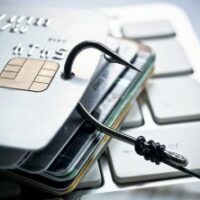Common Identity Theft Techniques

Becoming an identity theft victim is more than a nuisance; it can result in thousands of dollars in debt accrued under your name, a scarred credit history, and future mortgage loan denials. For this reason, you should immediately contact an identity theft attorney in Leesburg about reporting the incident to the proper institutions and securing your accounts. One way to avoid becoming a victim of identity theft is by learning how to recognize the most common techniques used in identity theft schemes.
Mail theft
Mail theft is a non-technological identity theft technique, as it merely involves a thief removing sensitive information from your mailbox. Through mail theft, someone else can obtain information about you from credit card bills, bank statements and other personal materials that can be used to assume your identity. Sometimes, a thief can even re-route your mail without your knowledge by simply asking for a change of address from the post office. If this happens, you might not even discover you are a victim until you eventually encounter a credit report dispute.
Credit card theft
As an identity theft lawyer, credit card fraud is an element in identity fraud crimes. Thieves can use the information on your credit card to perpetrate other identity theft crimes. For example, a thief can use your signature on the back of the card, loan your card to others, or open new cards and bank accounts in your name. A credit attorney can advise you on how to secure your card, such as signing the back and writing CID to require merchants to ask for other forms of identification.
Skimming
As technology evolves, identity thieves have found new ways to target your personal information. For example, a thief can use a device to read your credit card information from the magnetic strip on the back. This means a thief can obtain your credit card number without even touching the card itself. If you suspect your credit card number is stolen, contact your bank and an identity theft lawyer to avoid any unauthorized purchases or bank accounts opened in your name from harming your credit file.

